
RUNNING down the back of each cannon bone is the suspensory ligament, the tough, fibrous structure that supports the fetlock when the limb is loaded. The ligament starts just below the hock or knee and splits into two branches closer to the fetlock.
With the advanced imaging modalities now available, such as magnetic resonance imaging, we are more aware that not all suspensory ligament injuries are the same. Pain can come from the ligament and the bone where the ligament attaches – the cannon bone at the top and the proximal sesamoid bones at the bottom.
THE VET
DR RACHEL MURRAY is a veterinary specialist with particular expertise in advanced diagnostic imaging, poor performance and rehabilitation of sport horses. Rachel is based at Rossdales Equine Hospital and Diagnostic Centre in Newmarket, working in a team of sport horse clinicians. This world-renowned hospital sees horses and ponies from throughout the UK for diagnostic, medical, surgical and reproductive referrals. 01638 577754, rossdales.com
Suspensory ligament injuries may be caused by a sudden-onset single incident or repetitive overload. Damage at the top, or “origin”, of the ligament (proximal suspensory desmitis) is a risk in the hindlimb of the dressage horse, but possible in any sport. Damage in the middle, or “body”, usually occurs as an extension of injury at the origin or branches. Branch injuries may be caused by a twisting hyperextension of the fetlock or by direct trauma.
Certain conformational features and movement patterns may be associated with suspensory injury. A horse with a tendency to repeatedly and excessively extend his fetlock joints is at increased risk, which is related to his natural conformation and movement, the sport he does or his training.
Diese Geschichte stammt aus der September 17, 2020-Ausgabe von Horse & Hound.
Starten Sie Ihre 7-tägige kostenlose Testversion von Magzter GOLD, um auf Tausende kuratierte Premium-Storys sowie über 8.000 Zeitschriften und Zeitungen zuzugreifen.
Bereits Abonnent ? Anmelden
Diese Geschichte stammt aus der September 17, 2020-Ausgabe von Horse & Hound.
Starten Sie Ihre 7-tägige kostenlose Testversion von Magzter GOLD, um auf Tausende kuratierte Premium-Storys sowie über 8.000 Zeitschriften und Zeitungen zuzugreifen.
Bereits Abonnent? Anmelden
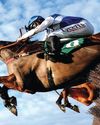
Gemirande provides 24-carat magic
Venetia Williams sparkles again in the December Gold Cup and jockey brothers dead-heat
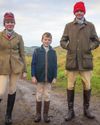
‘Happy hunting, everyone'
“The season for talks, dinners and parties has finally arrived for Tessa Waugh, whose distress about the snags of middle age fades away with some rousing festive spirits
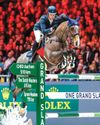
'Monaco deserved this victory
Seemingly destined always to play the bridesmaid’s role, Harrie Smolders’ great partner Monaco finally tops an incidentpacked Rolex grand prix
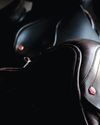
'It had to end sometime'
The closure of beloved Hampshire saddlery Calcutt Sons is a loss to the hunting and wider equestrian worlds, as Octavia Pollock reports

'You couldn't want for more
The Ludlow's peaceful country makes for a day in \"hunting paradise\"
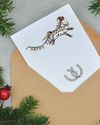
The greatest gift of all
Christmas is fast approaching and while we all like a bit of tinsel, the festive season is also a perfect time for giving to a horse charity. Niki Hinman finds out some of the options

Winter him well
A horse's winter routine can differ dramatically from his summer structure but what’s the knock-on effect? Ellie Hughes asks vets how to optimise routine management for the season
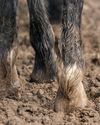
Neat feet
Excellent hoof care is a year-round concern but the winter months present their own problems. Richard Stephenson MRCVS explains the seasonal challenges afoot and how to stay one step ahead
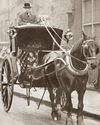
In bygone days
Modern vets have much scientific knowledge behind them, but what about their forebears? Kieran O’Brien MRCVS opens up the world of Victorian vets in London
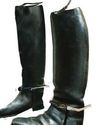
'When I joined the Pony Club it was just two boys and 48 girls'
Pepsi Kohler on being delightfully outnumbered by girls in the Pony Club, a leg-up from a royal and the H&H advert that changed his life